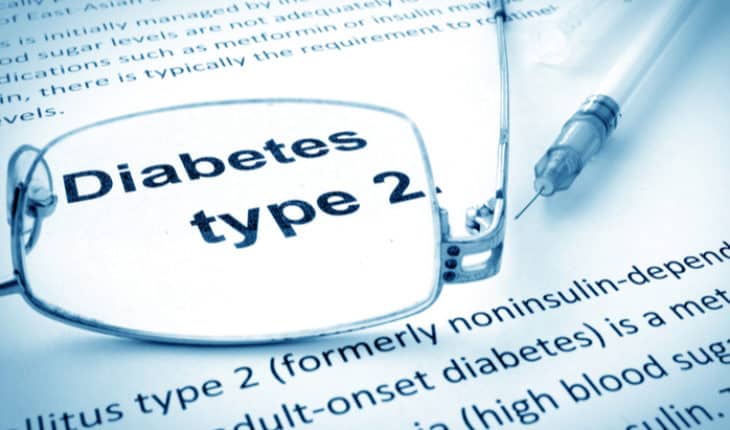Mild Autonomous Cortisol Secretion (MACS), diabetes and high blood pressure: Researchers from the University of Birmingham reveal scale of prevalence of a condition that can cause type 2 diabetes and high blood pressure.
Scientists at the University of Birmingham are calling for changes to healthcare policy following research which has shown for the first time the scale of the impact of a condition associated with benign tumours that can lead to type 2 diabetes and high blood pressure.
Up to 10 per cent of adults have a benign tumour, or lump, known as an ‘adrenal incidentaloma’ in their adrenals – glands situated on top of the kidneys which produce a variety of hormones. The lumps can be associated with the overproduction of hormones including the stress steroid hormone cortisol, which can lead to type 2 diabetes and high blood pressure. Previous small studies suggested that one in three adrenal incidentalomas produce excess cortisol, a condition called Mild Autonomous Cortisol Secretion (MACS).
Now, an international research team led by the University of Birmingham in the UK has carried out the largest ever prospective study of over 1,305 patients with adrenal incidentalomas to assess their risk of high blood pressure and type 2 diabetes and their cortisol production, comparing patients with and without MACS. The study is also the first to undertake a detailed analysis of the steroid hormone production in patients by analysing cortisol and related hormones by mass spectrometry in 24-hour urine samples they collected.
Their study findings, published today in journal Annals of Internal Medicine, show that MACS is much more prevalent than previously reported: with almost every second patient in the study with an adrenal incidentaloma having MACS. Notably, 70% of patients with MACS were women and most of them were of postmenopausal age (aged over 50). Following their findings, the researchers now estimate that up to 1.3 million adults in the UK could have MACS. Considering that around two out of three of these patients are women, MACS is potentially a key contributor to women’s metabolic health, in particular in women after the menopause.
First author Dr Alessandro Prete, of the University of Birmingham’s Institute of Metabolism and Systems Research, said: “Compared to those without MACS, we observed that patients with MACS were more likely to be diagnosed with high blood pressure and to require three or more tablets to achieve an adequate blood pressure control. When we looked at patients with a diagnosis of type 2 diabetes, those with MACS were twice more likely to be treated with insulin, indicating that other medications haven’t helped managing their blood sugar levels. In conclusion, our study found that MACS is very frequent and is an important risk condition for high blood pressure and type 2 diabetes, especially in older women, and the impact of MACS on high blood pressure and type 2 diabetes risk has been underestimated until now.”
Senior author Professor Wiebke Arlt, Director of the University of Birmingham’s Institute of Metabolism and Systems Research, said: “Previous studies suggested that MACS is associated with poor health. However, our study is the largest ever study to establish conclusively the extent of the risk and severity of high blood pressure and type 2 diabetes in patients with MACS. Our hope is that this research will put a spotlight on this condition and increase awareness of its impact on health. We advocate that all patients who are found to carry an adrenal incidentaloma are tested for MACS and have their blood pressure and glucose levels measured regularly.”
The study was funded by Diabetes UK, the European Commission, the Medical Research Council, and the Claire Khan Trust Fund at University Hospitals Birmingham Charity.
Dr Lucy Chambers, Head of Research Communications at Diabetes UK, said: “This important research, funded by Diabetes UK, reveals that a condition associated with benign adrenal tumours – Mild Autonomous Cortisol Secretion (MACS) – is more common and may have more of a negative impact on health, including increasing the risk of type 2 diabetes, than previously thought. These findings suggest that screening for MACS could help to identify people – particularly women, in whom the condition was found to be more common – who may benefit from support to reduce their risk of type 2 diabetes. We look forward to further research to uncover how MACS is linked to increased risk of type 2 diabetes, which could in the future lead to new ways of treating and preventing type 2 diabetes in those with MACS. If you have MACS and are concerned about your risk of type 2 diabetes, it’s important to speak to your GP or endocrinologist.”
Professor Arlt added: “Now that we have established that MACS is an important risk factor for high blood pressure and type 2 diabetes, our research will focus on three main areas. First, we want to look into how MACS is linked to this increased risk by investigating how cortisol excess affects human metabolism. Second, we are working on a test that can be used in the clinic to identify early on which patients with MACS carry a higher risk of developing high blood pressure and type 2 diabetes. Third, we are testing new treatment strategies to mitigate this risk in affected individuals. Our ultimate aim is to improve the health of the many patients living with MACS.”
The research, which took three years to complete, is part of EURINE-ACT, which is the largest prospective, multi-centre, international study conducted to date on patients with newly diagnosed adrenal tumours. This first of its kind research effort was achieved thanks to a collaboration with an international network of adrenal tumour specialist centres known as the European Network for the Study of Adrenal Tumours (ENSAT).
- Prete A et al (Dec, 2021). ‘Cardiometabolic disease burden and steroid excretion in benign adrenal tumors: a cross-sectional multi-centre study’. Annals of Internal Medicine. DOI: 10.7326/M21-1737
- The University of Birmingham is ranked amongst the world’s top 100 institutions, and its work brings people from across the world to Birmingham, including researchers and teachers and more than 6,500 international students from nearly 150 countries.
- Combination of drugs could prevent thousands of heart attacks - 21st April 2025
- UQ Study Links Poor Teen Diets to Heavy Social Media Use - 21st April 2025
- Gut microbiome could delay onset of type 1 diabetes - 3rd April 2025






